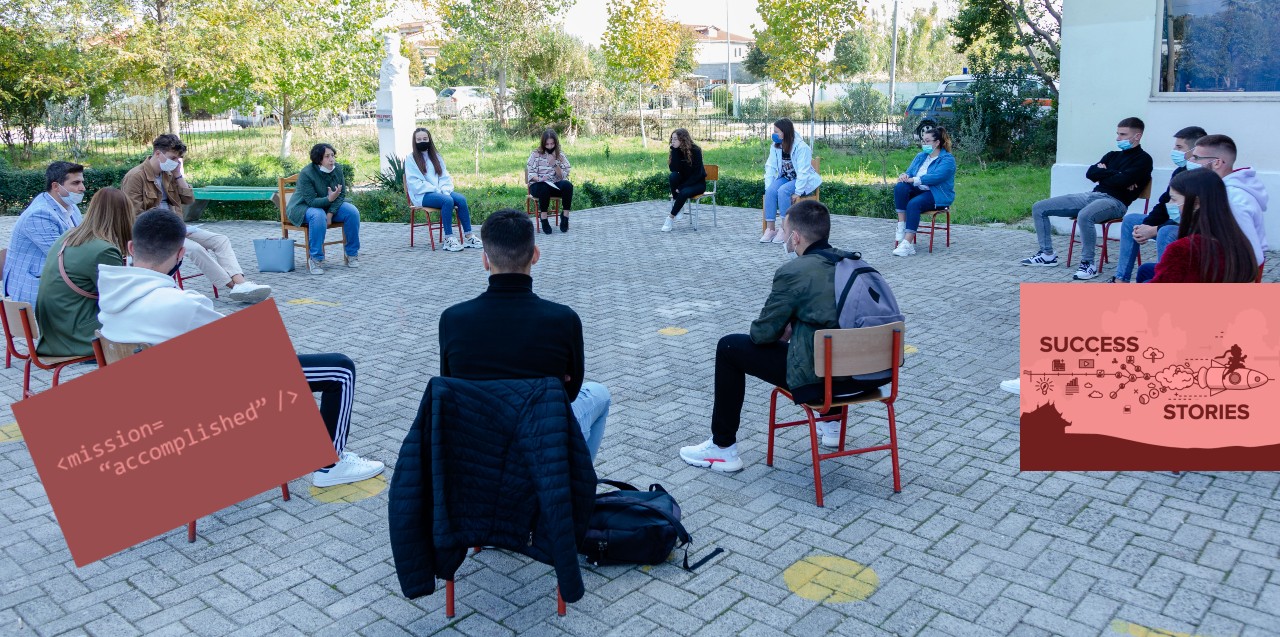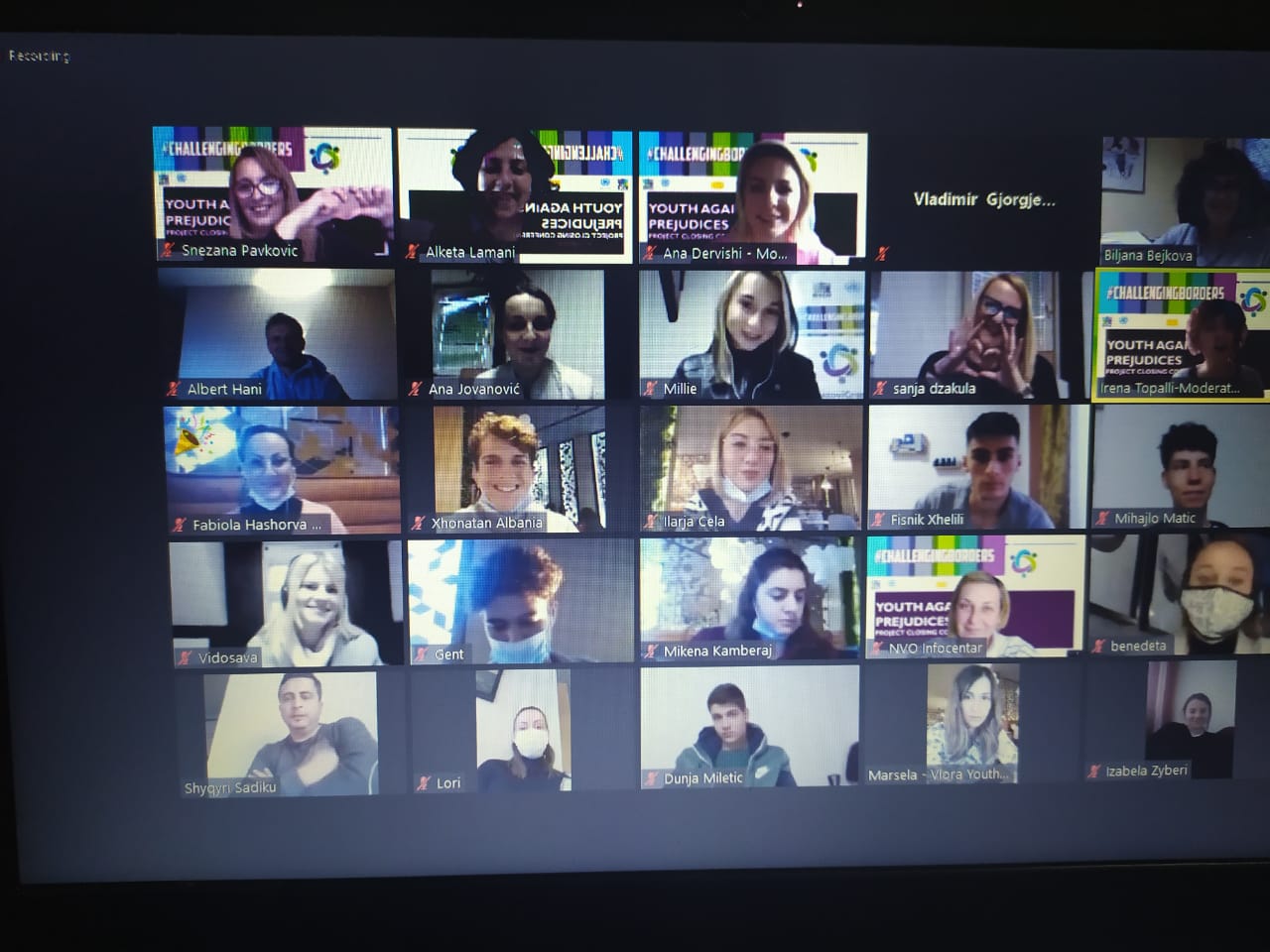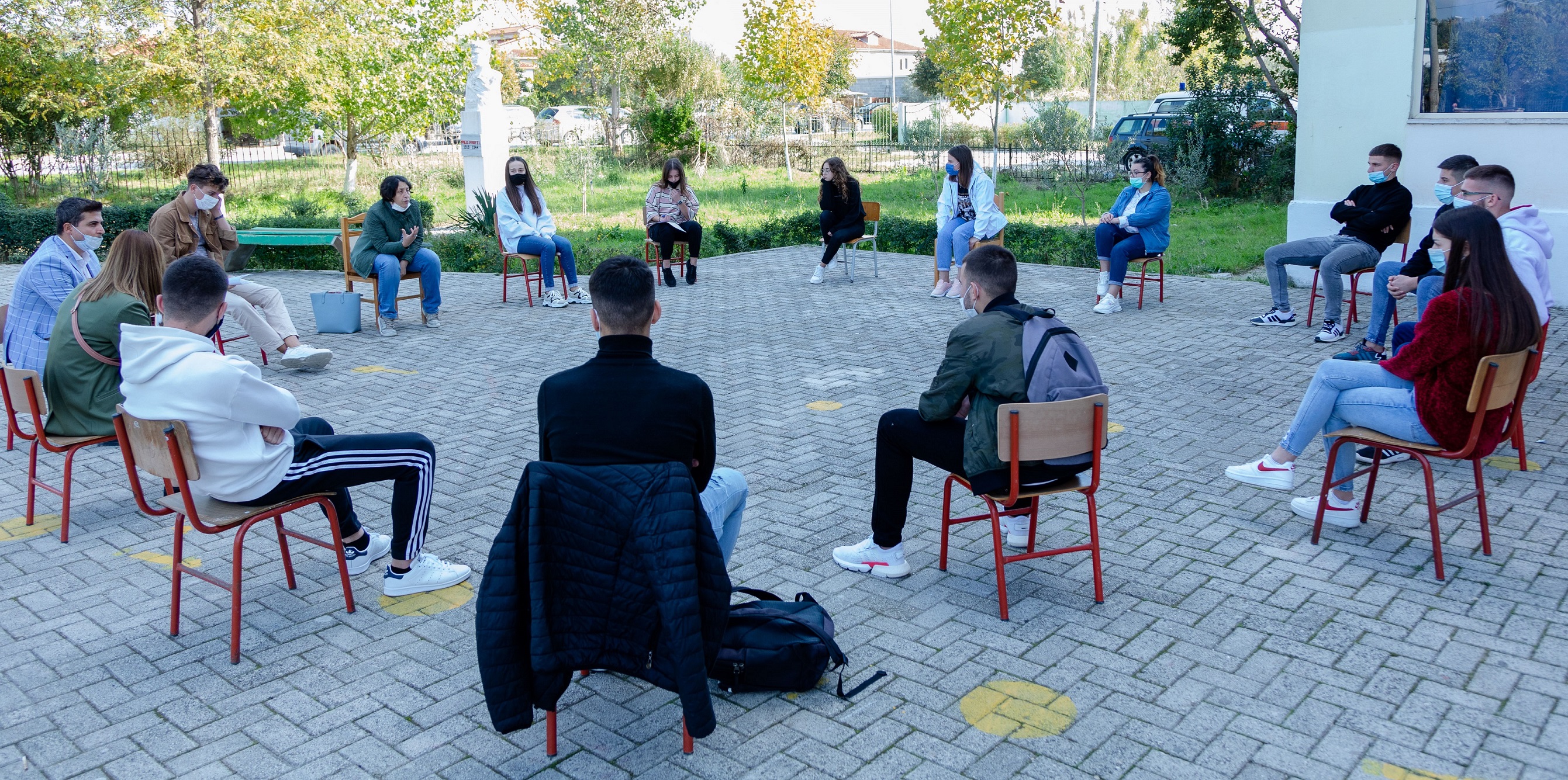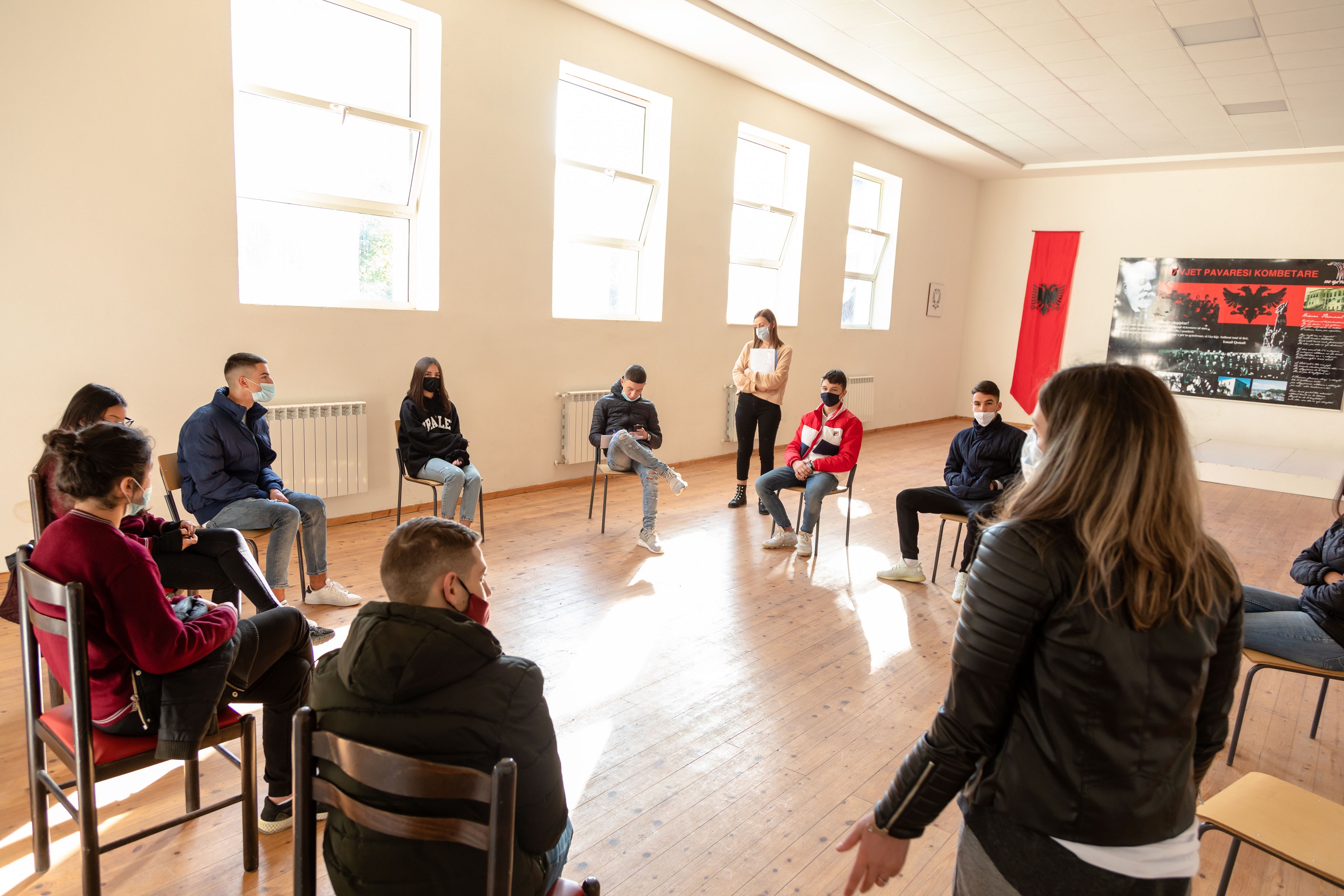

Guided by the desire to help their mates faced with quarantine and social distancing, the activists of Vlora Youth Center started to explore new methods of communicating with youth and innovative models of youth activism. The crucial generous question on their mind was how to keep up the spirits and wellbeing of other people.
They practically embraced the changes and challenges and turn them into opportunities for working with their target group. The young activists supported by Vlora Youth Center organised online meetings with local youth aiming at supporting them through online discussions on the COVID-19 situation. The topics ranged from negative effects impacting youth, to present insecurities and future challenges for young people. In a later stage the meetings generated ideas on activities to be implemented during the pandemics. Youth worked for the identification and distribution of useful information and resources regarding access to basic services.
“We will not withdraw from our commitment to assist young people and will continue to work tirelessly to provide relevant and accessible daily digital information. This will ensure that young people have all the information they need to make informed decisions and choices during these unsettling times”, states the people from the organization.

Beside the effort to help their mates by organising on-line discussion the Vlora Youth Center in April – May 2020 conducted a survey “COVID-19 effects on youth” among 225 young people in the municipalities of Durres, Vlore, Puke and Kamez. The findings of the study are presented in a report which was sent to the policy makers as an indicative input for any future process of youth policy development.
One of the main findings was that the young people are very concerned about their future in terms of the financial situation, physical and mental health, the well-being of their families, and the insecurity of their jobs.

In addition, the Vlora Local Youth Council members attended the online training on countering violent extremism organized by the USAID Planning and Local Governance Project (PLGP) with municipal administrators, local Security Council members and local stakeholders. Youth were introduced to concepts and forms of extremism, push and pull factors that lead to radicalization and role of local institution and other actors in keeping the communities safe.
